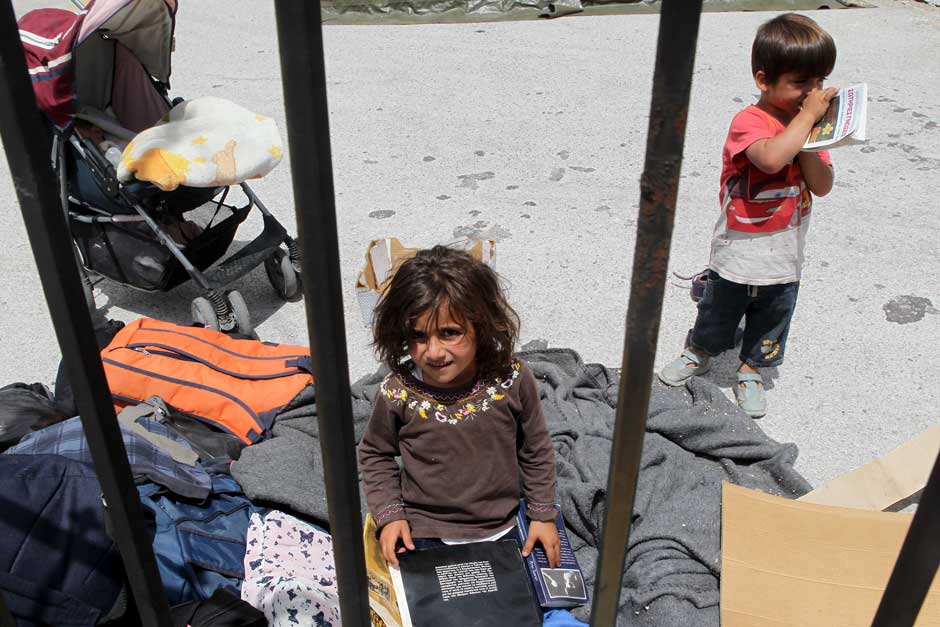Report: EU refugee crisis impacts post-Cold War world

About 54 thousand refugees and immigrants were trapped in Greece when the borders connecting Balkan Peninsula and Central Europe were closed in February, 2016. The picture shows child refugees reading books in the refugee reception center established in Thessaloniki, northern city of Greece on May 25.
The refugee crisis that swept Europe in 2015 as the result of changes of the political landscape in the Middle East and North Africa will have a significant impact on the post-Cold War world order, according to the Blue Book on Europe released by Institute of European Studies, the Chinese Academy of Social Sciences, on June 24 in Beijing.
The blue book, known as the Annual Development Report of Europe (2015-2016) is subtitled “European Refugee Crisis.”
The report suggests three major ways in which the refugee crisis has impacted Europe. First, the European Union reflected on its strategies in the Middle East and North Africa in the post-Cold War period and was more willing to devote resources to maintaining stability in these areas. The European Union recognized that most of the reforms it promoted in its neighboring countries met with mixed results, and not all its partners wish to establish a special partnership with the European Union under the banner of multiculturalism and integration.
The report suggests the European Union can be expected to engage with its neighbors to the south and east on a more equal footing. And Europe’s political will to democratically transform its neighbors will decrease as a result of the refugee crisis.
Second, France sought a more independent position in fighting against religious extremism. In response to the attacks launched by the Islamic state group in Paris on Nov. 13, 2015, the French government intensified its military efforts against the militants, changing its previous strategy of following the lead of the United States in foreign policy.
Finally, the United States faces a dilemma: Its fight against the Islamic state group conflicts with its target of overthrowing the legitimate government in Syria. A policy of ignoring the Islamic state group is not acceptable to the United States and its allies in the Middle East nor is a Shia-dominated and Russian-influenced Syrian government.
The ongoing multi-polarization of the Middle East has intensified, weakening the dominant position of the United States in this area, according to the report.
Huo Wenqi is a reporter at the Chinese Social Sciences Today.

 PRINT
PRINT CLOSE
CLOSE